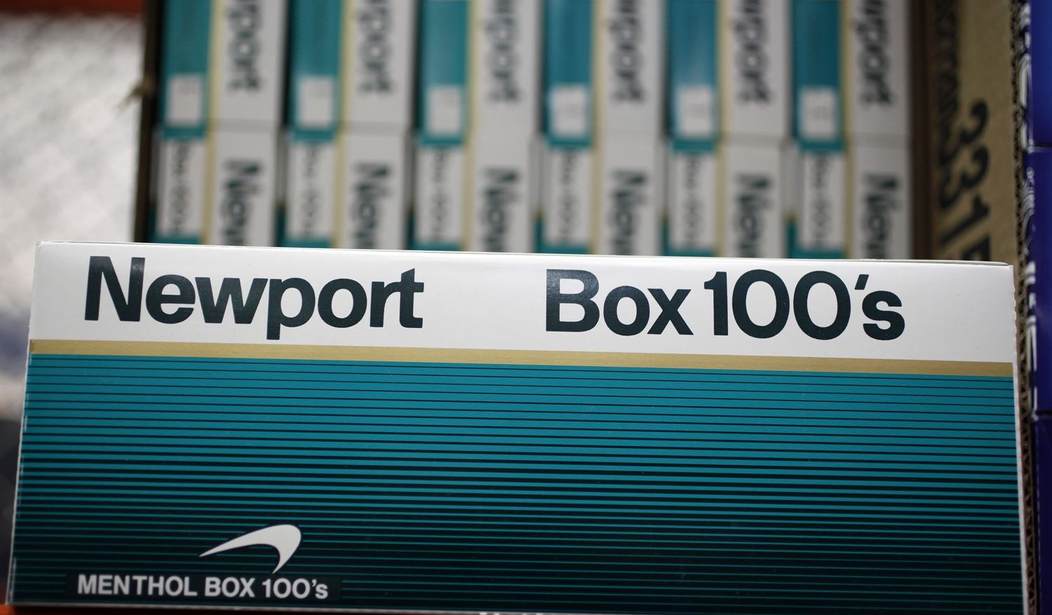In June of 2020, Massachusetts enacted a ban on flavored tobacco and nicotine vaping products and other nicotine delivery systems. They also banned menthol cigarettes. In less than a year, legislators began working to repeal all or at least parts of the ban. They cited enforcement issues and significant losses in retail revenue (and taxes, of course) as some of their concerns, but the ban remains. Those things happened as predicted. More data continued to pour in describing “unintended consequences” arising from the ban. These included a spike in cigarette smoking, particularly among Black women and all groups under the age of 25. Now, with the release of the latest annual report from the Massachusetts Multi-Agency Illegal Tobacco Task Force, we’ve learned of the other predicted result. Smuggling and tobacco piracy involving menthol cigarettes has been on the rise. As Jacob Grier of Reason Magazine put it, the ban went “as badly as you’d expect.” (Emphasis added)
In November 2019, Massachusetts became the first state in the U.S. to ban the sale of all flavored tobacco and nicotine products, including flavored electronic cigarettes and menthol cigarettes. Four additional states have since imposed flavor bans on some products and similar policies are under consideration in many other jurisdictions.
Such bans are popular among legislators and anti-smoking groups, but the latest data from Massachusetts highlight the ban’s unintended consequences. The state’s experiment in prohibition has led to thriving illicit markets, challenges for law enforcement, and prosecution of sellers.
It’s not as if the police in Massachusetts didn’t already have plenty of actual crime – including violent crime – to keep up with. But now they have to stay on top of the tobacco pirates. And those pirates have been plenty busy. Store owners have had their businesses shut down for selling menthol cigarettes to meet the demand, with Newport being the most popular brand. As the linked Reason report informs us, a single search warrant last year resulted in the seizure of a literal truckload of banned cigarettes with New Hampshire excise tax stamps representing $940,000 in unpaid excise taxes.
The enforcement issue was always going to be complicated and it’s now resulting in lawsuits making their way through the system. The Massachusetts ban only applied to the sale of flavored nicotine products and menthol cigarettes. It did not criminalize possession of these smokes. As your average middle school student could have predicted, people with a nicotine habit began driving across the closest state border and stocking up on cartons of cigarettes.
So what are the police supposed to do when they pull over a car entering the state from New Hampshire or Connecticut for speeding and they find five cartons of Newports in the trunk? If the driver is simply bringing the products back into Massachusetts to smoke in their own home, the law isn’t technically being broken. Even if there are a hundred cartons in the trunk, unless you catch someone in the act of selling the cigarettes to someone else, can they be arrested? As it turns out, some cartons of Newports have been confiscated. The state may wind up paying out an expensive settlement for that.
Those aren’t the only issues arising from this debacle. Enforcement officials have been seizing so many products that they are literally running out of space to store them all.
Revenue officials are seizing so many illicit products, in fact, that they are running out of room to store them. The “Task Force’s increased investigative and enforcement activities during the past year have led to the seizure of large quantities of illegal tobacco products, resulting in a strain on the Task Force’s storage capacity,” says the report. But fear not, they are working on leasing additional space “that will significantly increase storage capacity and allow for continued increased enforcement.”
The anticipated health benefits predicted by supporters of the ban are not likely to materialize. Sales data from the past two years shows that decreases in sales of menthol cigarettes in Massachusetts have been mostly offset by increases in sales in neighboring states. So you probably have nearly the same number of people smoking in the state and the only thing being reduced is tax revenue. Also, at least some of the former menthol smokers have probably simply switched over to Marlboros or some other non-menthol brand. So where is the health benefit in that?
All of this was predicted when the ban was being debated, so it shouldn’t have been a surprise. And what Massachusetts has actually done is produce a new class of criminals that are profiting from the situation while legitimate retailers have seen their profitability go downhill. Congratulations, everyone. A job well done.









Join the conversation as a VIP Member